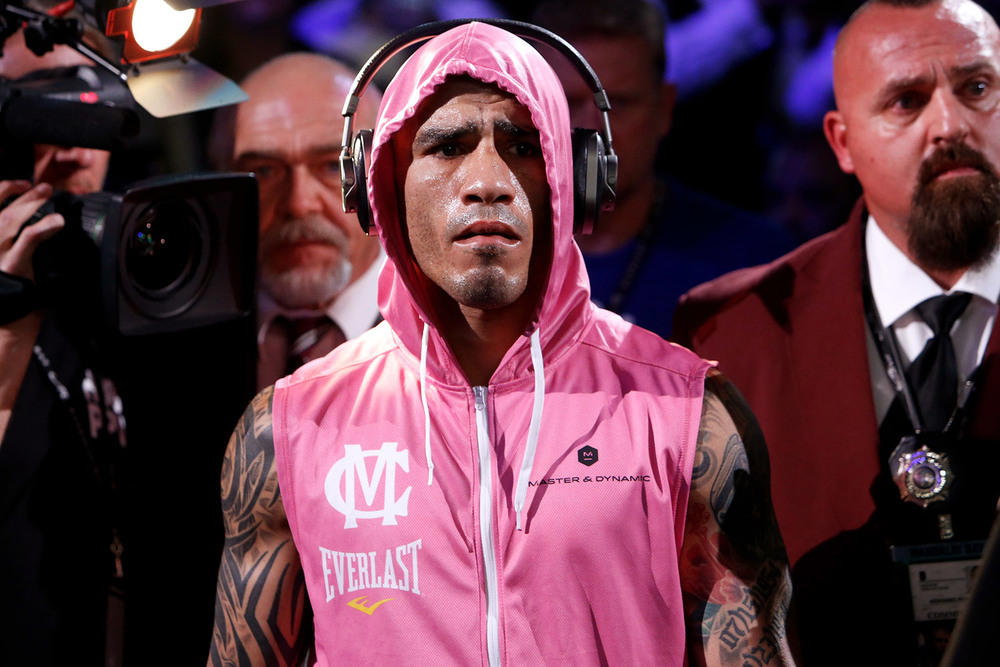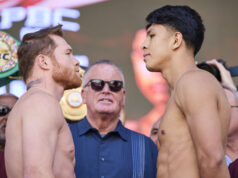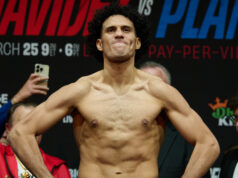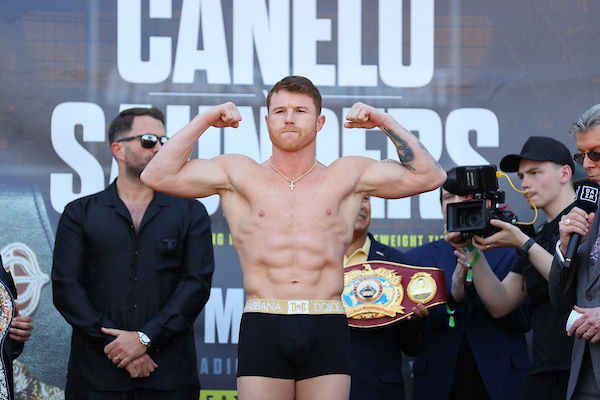By Jimmy Tobin-

There are worse ways to retire. In a sport that rarely bids its fraternity a kindly farewell, Miguel Cotto, who dropped a unanimous decision to Sadam Ali at Madison Square Garden Saturday night, left boxing via an earnest and entertaining prizefight before an adoring crowd at an iconic venue. Cotto should consider himself fortunate and move permanently into life after boxing. The fiercely polarizing fighter was not great, lest we dilute the meaning of the word, and barring that same dilution, he did not have a great career, but he had a proper one, and those too are cherished as they are rare.
To be remembered at our best is a courtesy we all want but infrequently extend. This is especially so in the case of Cotto, who, usually for reasons impossible to articulate without the use of this or that slur, an incoherent grunt of nationalistic programming, or much, much idle time, has long been characterized by his least redeeming qualities. Such a characterization ignores much of who he was. A parallel can be discerned between Cotto’s fights and the arc of his career: in each, he begins deliberately, aggressively, and in both, he fades late, the whispers of preservation growing into something undeniable and commanding. Yet how frequently people disregard the beginning.
There is an urge to romanticize our athletes; we interpret favorably, accentuate virtues, diminish and dismiss flaws until these people are who we want. And once the first truth is bent, the easier it is to hang further charms on it. Cotto benefitted from this refashioning; the man best suited to fill the void left by Felix Trinidad could expect to. If there is anything the age of identity politics has taught us, however, it is that the reverse is also true. It is surprisingly easy to tear someone down, having one fault however tenuously beget another and another until the truth is obscured. And if you were looking for that one fault, the thread to unravel Cotto’s career, you could find it, though never in the effort he put forth between ropes.
No, what turned so many off Cotto was his disregard for the proprieties of his trade. There was a time when this behavior seemed like the work of a man looking for retribution. Cotto, once obedient to promoter Top Rank, suffered brutal beatings at the hands of Antonio Margarito and Manny Pacquiao. Believing himself the victim of something nefarious in the first case, exploitative (and possibly nefarious) in the second, it was reasonable to think Cotto, by then a powerbroker among fighters, might exact his vengeance on the sport.
Years later this interpretation feels wrong. It implies Cotto understood that there was something untoward about demanding catchweights, refusing to conduct interviews after losses, treating promoters like employees, and that these tactics were the intended means of revenge. But payback was never part of Cotto’s calculus. He simply understood his place in the sport, the leverage he wielded, and acted accordingly: seeking every advantage, and gaining most of them. Cotto was not a warrior—he was a mercenary. That mercenary conduct ran counter to the selectively invoked nobility of the “manly art” and Cotto’s reputation suffered for it. Granted, this is not much by way of a defense of Cotto’s conduct, but then, it is far more than he would ever care to offer.
If it is a defense of Cotto that you want you need only ask yourself how he managed to achieve his industry leverage. The answer to that question forces you to examine the part of his career so strangely ignored: he made every fight the public could ask of him with the exception of one. Cotto, after giving Sergio Martinez a gold watch beating, perhaps should have fought Gennady Golovkin. Instead, he fought Saul Alvarez. Cotto was only ever going to make one of those fights because he was going to lose both. Forgive him then, for giving boxing’s most devoted supporters the fight they wanted.
But he lost so many of those signature fights, you say, as though this is only a criticism, as though there is not a rare compliment to be drawn from it. A greater attraction than he was a fighter, Cotto could have taken fewer risks than he did. Yet as Carlos Acevedo pointed out last week, he consistently imperiled himself, and in doing so left boxing better for his presence. His record shows losses to Margarito, Pacquiao, Alvarez, Floyd Mayweather Jr., Austin Trout, and Ali, and some dubious victories like his decisions over Shane Mosley and Joshua Clottey. Yet all but the Trout fight were worthy of your attention, and since one man cannot a compelling fight make, Cotto deserves credit for his part in that bloody bestowal. To ignore what he gave boxing with his fists, with his blood, or to consider his behavior beyond the ropes of comparable value to his conduct within them, is to take a jaundiced view of his career and deny the man what he earned.
What he earned over 16 years is all he deserves; no more, of course, but certainly no less. Whether he deserves a place in Canastota is a question that is only important if the answer matters to Cotto. Assuming it does, assume he’ll like the answer, and that plenty of people won’t.











